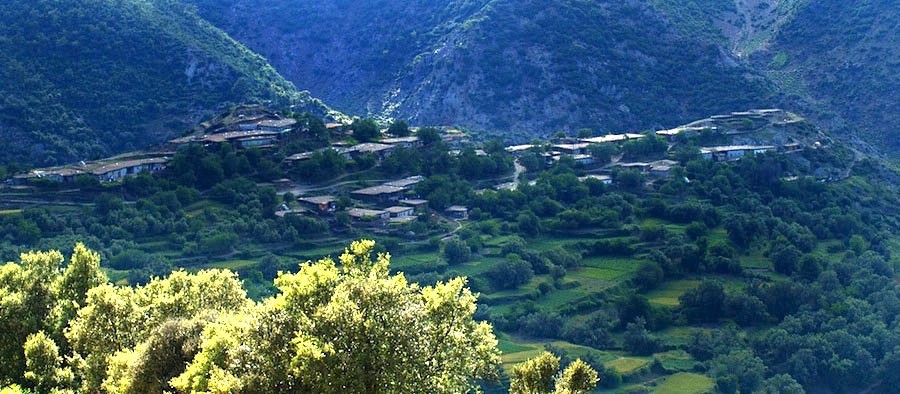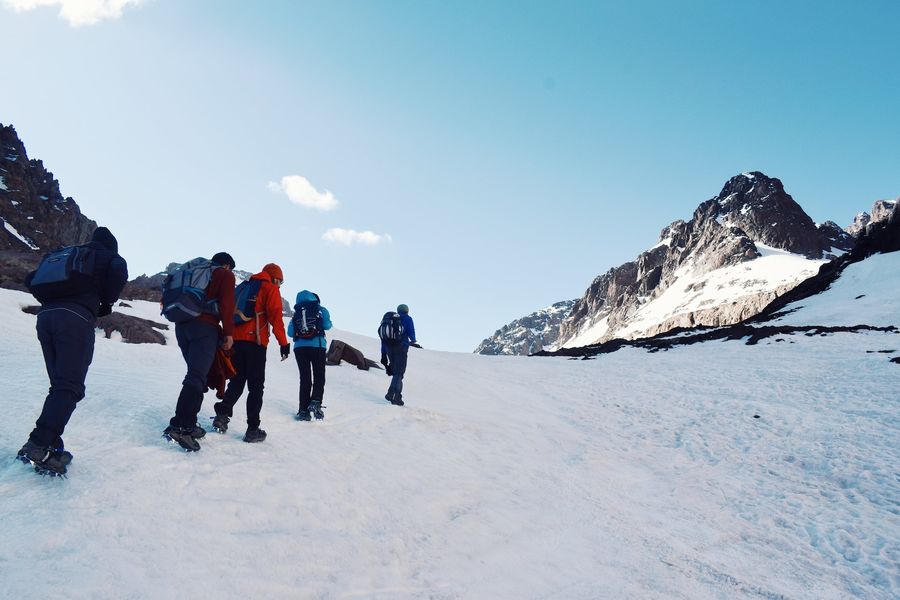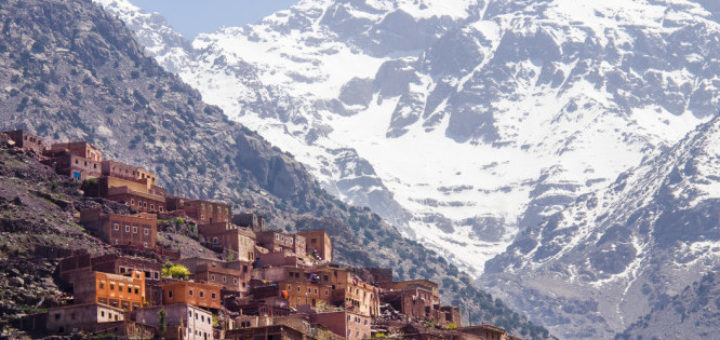
Just north of the Sahara desert, the Atlas mountains are a perfect spot for hiking in Morocco and offer travelers a little taster of the country’s nature and great outdoors.
The craggy landscapes that await you here provide a stark contrast to the bustling souks and winding alleyways of Marrakech.
Since this mountainous region houses the highest peak in North Africa (Jebel Toubkal), a visit to the area features high on the bucket lists of many intrepid adventurers and mountaineers.
Treading the Toubkal hiking trail enables travelers to navigate their way through an array of different landscapes – from small villages and farmlands at the base, to scenic Islamic shrines, Moroccan pilgrimage sites and rocky mountain pathways.
The peak offers incomparable views over the valley below, and while the hike is certainly challenging, it is absolutely worth it.
Table of Contents
Arranging a Trip to Toubkal
Toubkal and the Atlas mountains are relatively accessible from Marrakech. You need to travel to the small village of Imlil in order to commence the hike.
However organizing the transfer to the village is relatively easy and you will find that there are dozens of local tour companies and hotels in Marrakech that are eager to help you organize a ride to Imlil.
Additionally, companies in Marrakech will be able to help you locate a Mountain Guide to accompany you on the hike, and a mule too if you need assistance with carrying luggage.
Traveling from Marrakech to Imlil takes around 90 minutes in each direction. From Imlil, you will begin your Toubkal ascent.
Depending on your personal preferences and physical fitness levels, you can either opt to complete this hike in 2 or 3 days.
This article focuses on completing the hike in two days, and then offers suggestions for spreading the adventure over a slightly longer period of three days for those who would prefer a more relaxed pace.
A Suggested Itinerary for Toubkal Hiking
Day One
Upon arrival at the small village of Imlil, travelers will begin their ascent towards the 4167m summit of Jebel Toubkal.
On the first day of the journey, you will hike as far as the Toubkal refuge (3206m).
This section of the route sees you pass berber villages and farmland, scenic shrines and natural waterfalls.
You should expect to walk between 6 to 10 hours on the first day (dependent on pace) before arriving at the refuge Toubkal and when night falls, you can either camp, or rent accommodation at the refuge point (dependent on season).
Day Two
Waking up bright and early on day two, you will continue up towards Toubkal’s peak from the refuge (a journey which you can expect to complete in around 2-3 hours), marvel at the views below, pat yourself on the back for having conquered North Africa’s tallest mountain, and then commence your descent back down towards Imlil.
Be mindful that the summit is only the halfway point of the journey. A gradual downhill descent can be accomplished in almost half of the time as the ascent, however it is still challenging.
Many visitors to Toubkal will compact the entirety of the descent into their second day.
For those wishing to take a steadier pace can opt to spend an additional night at the refuge point during their descent, therefore extending the trip to a period of three days rather than two.
On the third day, these travelers would complete the descent from the refuge to Imlil.
Difficulty Rating
Towering above the clouds at a height of 4167m, hiking Toubkal is no mean feat.
The sheer height of the mountain, accompanied by the altitude and the length of the trail make this route better suited for intermediate or advanced hikers as opposed to absolute beginners.
You don’t need to have a body and a workout schedule that would rival Hercules but those attempting this hike should have a good general level of fitness.
Altitude sickness can affect even the most experienced mountaineers and garners the ability to strike at any height exceeding around 3,000m.
Those hiking in the Atlas mountains should familiarize themselves with the symptoms of altitude sickness and know when to take a rest.
It should also be noted that the hiking conditions vary significantly depending on which time of year you opt to travel to Morocco.
If you are intending to travel during the winter season, you should take additional precautions and prepare the necessary mountaineering tools and equipment as outlined in more detail below.
When to Go Hiking in Atlas
It is possible to hike Toubkal during any time of year, however as you can imagine, the different seasons bring with them different challenges associated with hiking.
If you are planning a trip to the Atlas mountains during the winter months, you will need to consider taking additional hiking equipment such as crampons and an ice axe since conditions will be slightly more treacherous, particularly close to the snowy summit.
During the Summer months, travellers should be mindful of the potential for rockfell.
Spring
The months of April through to June are a relatively pleasant time to consider this hike.
There will still be a little snow remaining from the winter months as you pass the 3000m ascension point, however the conditions are notably less treacherous than during the height of winter.
Since thin layers of snow still prevails at some of the higher points of the mountain, hikers may want to consider taking hiking poles with them for support.
Though spring temperatures are very warm in the day, they drop well below zero at night time so pack accordingly.
Summer
Morocco gets incredibly hot during the Summer months (think average temperatures of circa 40 degrees celsius!) and the conditions are not the most pleasant for hiking and climbing mountains!
If you do decide to hike during this season, you should note that the scree is loose, making the mountain more prone to rockfall so you should be cautious of your footing.
Fall and Winter

Between the months of October and April, snow covers the mountain of Toubkal from the point of around 1000m.
It is imperative that hikers are suitably equipped and prepared for this with the necessary tools such as crampons and a mountaineering axe.
At the time of writing, there is no requirement for a permit in order to hike Toubkal.
A lot of the trails that extend from Imlil to the summit are well marked and easy to distinguish so it is possible to plan the hike independently, however, a mountaineering guide may offer additional peace of mind.
